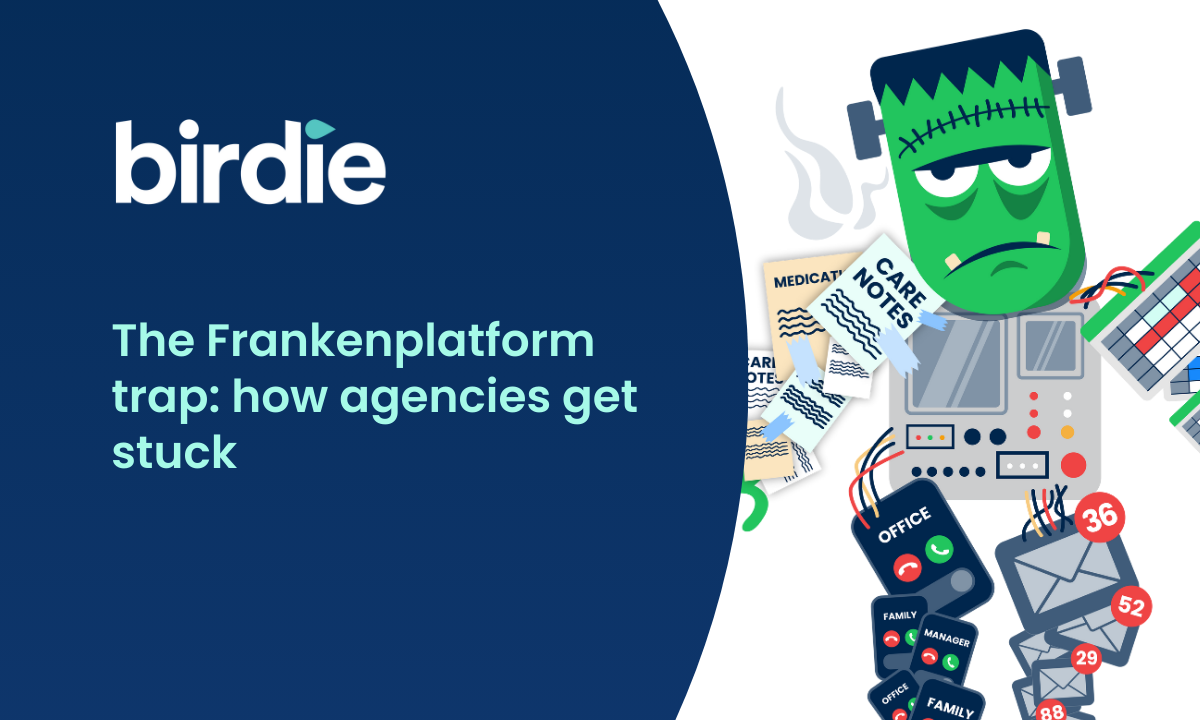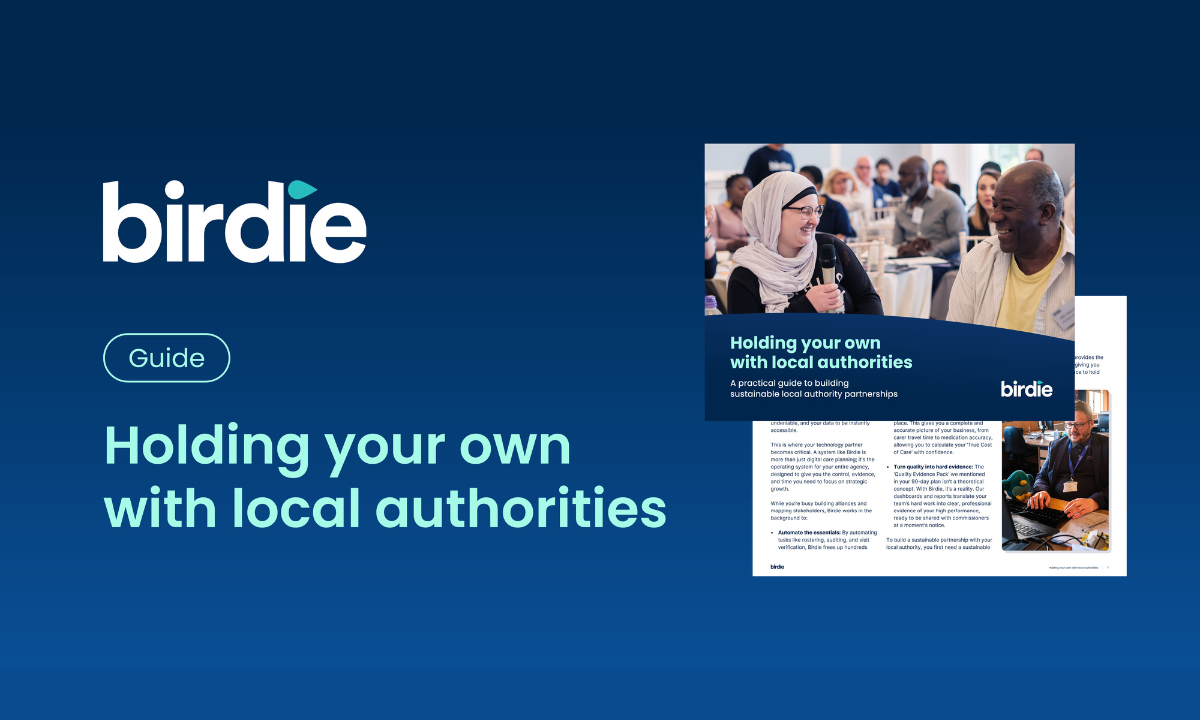Table of contents
As of April 2024, the CQC launched the single assessment framework across all health and social care providers. This framework has included a number of changes to the way the CQC perform inspections and provide a rating. Therefore the information below may contain some outdated information. For the latest information on what has changed and what you need to know, please head here.

If you’ve previously received a CQC Requires Improvement rating, you’ll know how important it is to be fully prepared for your next inspection.
The first place to start is the CQC's guideline of the vital aspects of care that clients must receive, called The fundamentals of care, also known as the CQC Quality Standards.
What are the CQC Quality Standards?
The CQC sets out fundamental standards that care should meet. The purpose of these standards is to inform clients of what to expect from their home care service. As a home care agency, ensuring that your service meets these CQC quality standards can improve your chances of achieving a good or outstanding rating at your next inspection.
The fundamental CQC quality standards cover:
- Person-centred care
- Dignity and respect
- Consent
- Safety
- Safeguarding from abuse
- Food and drink
- Premises and equipment
- Complaints
- Good governance
- Staffing
- Fit and proper staff
- Duty of candour
- Display of ratings
Based on the CQC Quality Standards, we’ve put together seven actionable steps you can take to improve your score at your next CQC inspection.
1. Make sure care plans are personalised for every client
The CQC quality standards state that people must have tailored care to meet their needs and preferences. If you consistently use care planning in your home care agency, you’re already half way there, but care plans can’t be rigid or generic if you want to obtain a good or outstanding rating in your CQC inspection. There needs to be some flexibility to adapt and change care plans according to each individual client’s needs. An experienced staff member should be making initial assessments of clients to personalise care and decide which care plans are appropriate.
2. Revisit your complaints procedures and whistleblowing policy
The CQC wants to check how you handle complaints from start to finish. Firstly, people should feel comfortable raising a concern without fear of reprisals. A clear whistleblowing policy reassures staff that they will be supported when reporting near misses or incidents and provides evidence of your approach for your CQC inspection.
Clients must also know that they can complain or raise concerns without any impact on their care. Your complaints procedure must include any action taken, whether the issue was resolved, and lessons learned for the future.
3. Check staff files are in order and recruitment checks are complete
The CQC quality standards require you to have fit and proper staff in your home care agency to protect your vulnerable clients from harm. Return to all staff files and ensure that the necessary background checks are complete for all employees, including a DBS check, the right to work in the UK, and two written references from previous employers.
4. Make sure you have adequate staffing levels for every shift
The CQC recognises that you cannot provide the best care for clients without adequate staffing levels. You need to have enough carers on shift so that visits are not rushed and they have the time to deliver care compassionately and respectfully. Advertise any vacancies as soon as possible. The skill mix of staff on duty must also have a balance of experience, skill and knowledge so that senior staff can support and educate more junior colleagues. Make sure all mandatory training is up to date for employees.; if any have lapsed, register employees onto the relevant training immediately.
5. Show that you are supporting nutrition and hydration for clients
The CQC quality standards state that clients must be supported with their food and drink needs. During visits, carers are often expected to prepare meals for clients, and they must do this with care, attention and respect for the client’s wishes. If relatives have left preprepared meals, carers must ensure it is safe to eat before serving. Any employees tasked with food preparation must have the relevant food hygiene certificates. A client has the right to refuse food or drink, assuming that they do not have a best interests decision under the Mental Capacity Act 2005. Ensure you have robust documentation when this happens and show any interventions taken as a result, for example, referring to dieticians or the GP. Be ready to show inspectors how you monitor a client’s intake, perhaps with food and drink charts.
6. Train all staff on issues around consent
Consent is a vital part of care delivery, and the CQC quality standards state that a client’s consent must be sought before any intervention. However, issues around consent do arise, which can be complicated by gaps in knowledge and training among staff. During your CQC inspection, inspectors will ask your employees about their understanding of consent and their awareness of the Mental Capacity Act 2005. Before your inspection, make sure staff are up to date with training and enrol anyone who’s not. Review cases of any clients subject to best interest decisions and make sure staff understand what this means.
7. Display your CQC ratings as required by the CQC quality standards
We understand your disappointment in receiving a Requires Improvement rating. Still, to comply with CQC regulations, you must display your ratings for the public to see, including at your premises and on your website. Hiding this information from the public can incur immediate prosecution without warning. To comply with CQC quality standards regulations, you must display specific information as outlined here.
Birdie can help you carry out the necessary audits as you prepare for your next CQC inspection. Our tools are closely aligned with the CQC quality standards and provide streamlined, simple methods of complying with regulations. Find out more about how Birdie can help you achieve a good or outstanding CQC rating, here.
Published date:
March 5, 2022
Author:
Emma-Lee Curtis

%20(1).png)















.svg)